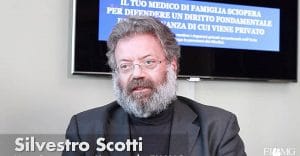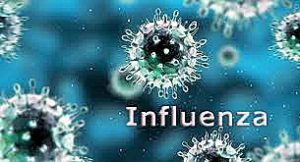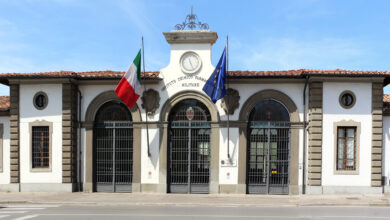
There are almost 7 million patients visited in the last three days in the offices of Italian family doctors. An increase of about 30% compared to the same period of the previous years.
These are the data processed by the FIMMG (Italian Federation of General Practitioners).
From 2 to 4 January, around 51 people were seen daily in the clinics of the 45,000 mmg, against a usual average of 30/35.
 “These days our studies are overcrowded by people with flu viruses – underlines the national secretary of the FIMMG Silvestro Scotti – these are above all the elderly and chronic patients. This is why it is important to underline once again the importance of vaccinations. This year we are witnessing a slight increase in vaccinated people over 65, but the percentage is still low”.
“These days our studies are overcrowded by people with flu viruses – underlines the national secretary of the FIMMG Silvestro Scotti – these are above all the elderly and chronic patients. This is why it is important to underline once again the importance of vaccinations. This year we are witnessing a slight increase in vaccinated people over 65, but the percentage is still low”.
“The flu is not affecting all Italian regions in the same way – continues Scotti – the best results are being recorded in the realities in which the focus is on the complex organization of general medicine, characterized by coincidence of organizational autonomy and responsibility for the results. In these realities, family doctors, especially thanks to investments in personnel, have played an active role in prevention policies with particular reference to vaccinations.
In Veneto, for example, the incidence is 4 cases per 1000 patients (Influnet data) while for example in Piedmont there are 15 cases per 1000 patients, making it necessary to ask what is not working. This trend  is paradigmatic not only for the flu vaccination but because it becomes a reasoning basis for all the systems/welfare models that have been pursued for years in the regions of which we continue to speak of as the panacea for all problems (access to emergency rooms, lists of waiting, chronicity management, primary and secondary prevention), but today from the reported data it emerges that the real investment in general medicine is of greater trust of the institutions in doctors at least equal to that which our patients have in us and this in many parts of Italy despite the scarcity of tools.
is paradigmatic not only for the flu vaccination but because it becomes a reasoning basis for all the systems/welfare models that have been pursued for years in the regions of which we continue to speak of as the panacea for all problems (access to emergency rooms, lists of waiting, chronicity management, primary and secondary prevention), but today from the reported data it emerges that the real investment in general medicine is of greater trust of the institutions in doctors at least equal to that which our patients have in us and this in many parts of Italy despite the scarcity of tools.
Finally, it appears evident - continues Scotti - that the way to reduce access to the emergency room is not represented by a simplistic increase in the presence of family doctors during the day or week, but rather to make the work they already carry out more effective and efficient during the their ordinary activities, i.e. more tools for initiative medicine, more primary and secondary prevention, fewer visits to the emergency room.” concludes Scotti.
Related news: An Organic Explanation for “Masculine Fever”





